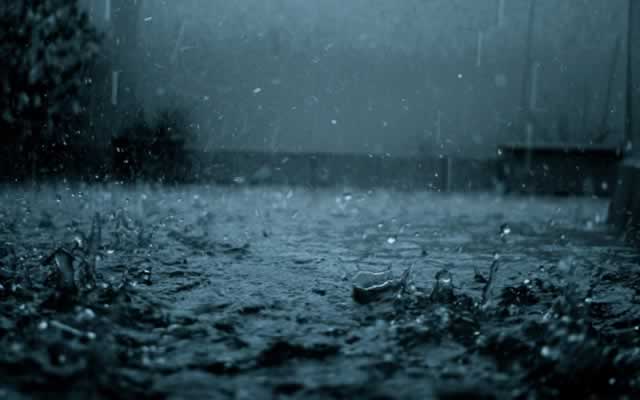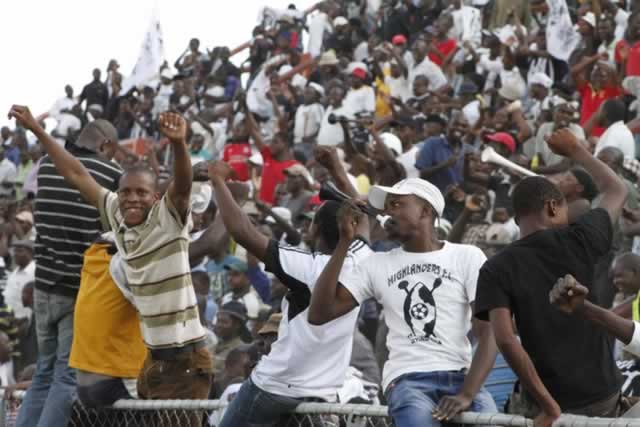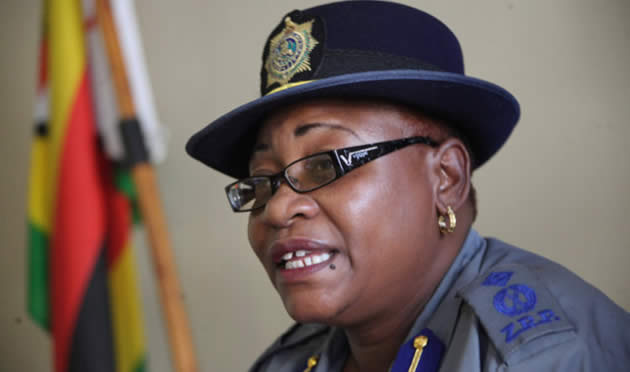Sangomas vs Met Dept: Who’s right on rains?

 Yoliswa Dube Features Reporter
Yoliswa Dube Features Reporter
GLOBAL warming and climate change are terms that do not form the vocabulary of traditional healers but the sangomas are predicting heavy rains where modern science is seeing none.
The Meteorological Services Department (Met), who attribute the changing and unpredictable weather patterns to global warming and climate change effects, had earlier predicted poor rains this year, dragging themselves into a bizarre row with the sangomas.
The inyangas, through their representative body, the Zimbabwe National Traditional Healers Association (Zinatha), are predicting good rains after holding a rain-making ceremony at their Komninindaba cultural village in Bulawayo’s Luveve suburb on Saturday. Rainmaking rites include prayers and special dances accompanied by special beer brewed by the elderly members of society who have since gone into menopause.
Zinatha has been blunt and curt in dismissing the Met department report labelling it “wrong”.
They accused the Met department of playing God with its “gloomy warning” of a drought.
Even so, the Met Department’s forecast has been corroborated by regional and international weather monitoring organisations, including the Famine Early Warning Systems Network (FEWS NET). FEWS NET warned there was a “90 percent chance” that an El Nino — a weather phenomenon — will sweep through the region from October to December.
The famine-and-food-insecurity-warning network noted: “Historically, El Nino conditions are associated with below-average and erratic rainfall in the south-eastern parts of the region during this period. These conditions might result in a late start of the rainy season in the southern parts of Mozambique, Malawi, and Zimbabwe.”
But Zinatha, which brings together hundreds of practitioners of traditional African medicine, said it has a plan that will lead to a bumper harvest: a rainmaking ceremony. Prayer for more rain is a cross cultural practice in areas where people keep traditional non-scriptural religions.
Dorothy Gumede, the Zinatha vice chairperson, stated the traditional healers’ position: “We believe rain should be asked from God and no-one should predict the unseen side of God’s universe.”
She said people should expect heavy rains after last Saturday’s rainmaking ceremony.
The rainmaking ceremony, she said, is meant to help the country receive better rains in the 2015-2016 farming season.
“We asked for rain and it will fall,” declared Gumede. “We’re totally against the meteorologists’ prediction. They’re wrong to predict that there’ll be drought.”
Gumede claimed the country experienced showers last month because Zinatha members sat down and asked for precipitation from the traditional spirits.
“The weather suddenly changed when we gathered in our offices. There’s a need to ask for rain from God as we used to do in the past. Those scientists who predict weather are wrong,” she said.
Gumede wants the culture of hosting Hosana dances during rainmaking ceremonies to be revived.
She attributed recent droughts to people having abandoned their cultural beliefs.
“We invited all Zimbabweans to attend the ceremony,” said Gumede.
However, traditionalists are puzzled by Zinatha’s holding of a rain-making ceremony in a suburb instead of the traditional venue, Njelele Shrine in Matobo district.
Gumede said the change of venue was because the majority of traditionalists involved in the event were from Bulawayo.
Stella Katerere, a spiritual healer, believes the successive droughts were caused by the angry gods
The gods, claimed Katerere, were angry because of all the mishaps happening in communities.
“That is why it has not been raining. There is a need for the gods to be appeased. We need to go down on our knees and sprinkle some snuff on the ground if we want normal rain patterns to resume,” she said.
Katerere attributed the drought problem to Zimbabweans who have forgotten about their ancestors.
Zimbabwe’s agricultural sector, once the mainstay of the country’s economy, has been crippled by a myriad of challenges, among them, inconsistent rainfall.
The government has availed farming inputs to farmers across the country as part of initiatives to support farming activities in the country. These, however, have continuously gone to waste owing to the unfavourable weather conditions prevailing in the country.
For many years, the Met Department played an active supportive role to farming by providing the nation with weather forecasts that helped farmers plan adequately for farming seasons ahead.
Zinatha’s forecast could throw communal farmers’ preparations into disarray owing to the conflicting signals, experts say.
Sam Sibanda, a farmer, said: “We’re confused as farmers on how we can proceed with our activities. It becomes very difficult to plan. There’s the temptation to follow the traditional route and believe the rains will come but it’s difficult to ignore science. It would be foolish to ignore facts and rely on the spiritual.”
Neutrals dismissed Zinatha as attention seekers who want to gain relevance in a world that has embraced modernisation through science.
They said farmers who remain stuck in the old ways risked starving their families.
“Traditionalists should allow farmers to be guided by experts of their choice. Rainfall patterns have become less predictable in recent years. This has affected farming resulting in reduced yields in most parts of Southern Africa.
“We need to employ the latest technology and understand more about the global warming and climate change issues. We also need to embrace water harnessing techniques for irrigation to boost food security,” said John Maphosa, a student of agriculture in Kwekwe.
Historian and veteran journalist, Saul Gwakuba Ndlovu, said only people from a specific clan could conduct rain making rites.
“The Lubimbi people are responsible for rainmaking rites. Anyone involved in this ought to belong to the Mbedzi clan. It has nothing to do with herbalists, sangomas or any other familial spirits that deal with herbs and charms. The Ngunis are not in any way involved in this,” he said.
The historian said there was, however, nothing wrong in sangomas conducting a rainmaking ceremony in Luveve as long as the participants met the cultural expectations of the process.
Ndlovu said there are four shrines in the region which are Njelele, Manyangwa, Komninindaba and another in the Hwange district.
Turning to modern and traditional methods of weather forecasting, Ndlovu said conducting rainmaking rites was a belief which should be respected despite the advancement of modern technology.
“By saying it’s not true that singing and dancing can bring rain; you hurt the egos of the believers of rainmaking ceremonies. Let them continue but they ought not to criticise modern science as well.
“They should, instead, endeavor to learn more from science so that they enhance their own knowledge.”
The Met department insists that the early stages of the rainy season will be mostly characterised by poor rains, especially in the southern parts of the country.
It has advised the government to plan for poor harvests.
“For now, we’re worried about the onset of the rainy season,” said Met director Amos Makarau.
“It should be noted that this is only an outlook. We’ll provide more details and updates in the coming days,” he said.
Agri-business expert Tapuwa Mashangwa said weather forecasts by the Met Department were based on empirical evidence.
He urged farmers to follow these forecasts saying they were based on the highest possible probabilities.
“Predictions done by the Met department are done after they’ve come up with a statistical analysis.
“This analysis is based on past comparison and the result given is based on the highest possible probability so it can be trusted,” said Mashangwa.









Comments